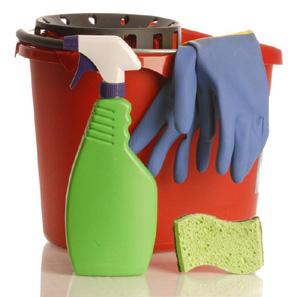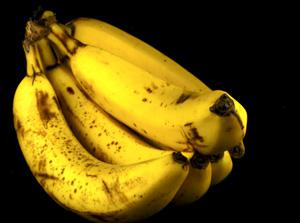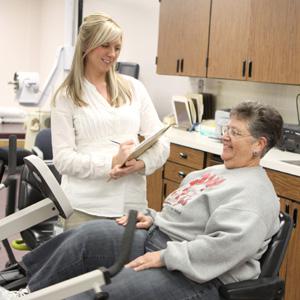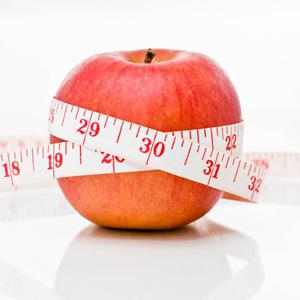
For anyone who is losing weight, burning calories is a number one priority. Excess calories in our bodies get transformed into fat that gets stored around our body and it is these that are responsible for poor physiques and a number of health issues.
If you want to enjoy a good physique and good health then, it is important to ensure that you use up more calories than you eat and that means finding ways to burn calories. Burn enough calories and your body will then need to start getting calories from elsewhere and that will mean plundering your fat stores and converting that into useable energy so that you not only stop gaining weight, but also start losing it.
For the most part that means exercising and this means in turn grueling work in the gym or jogging down the park and bead of sweat and chaffing and breathlessness... it's easy to see why many people give up before they start on losing weight.
The good news is though that it's not just these intense exercises that help you to burn calories – in fact everything you do burns calories. This goes all the way down to the very most basic activities and functions of the human body – even just breathing and having a heart beat will burn calories and this means that you are losing weight all the time. This is called your 'basal metabolic rate' and this refers to the number of calories burned just through your usual behavior.
Then you need energy for everything else you do on top of this too – and that means walking around, talking and thinking. Literally anything that requires movement or thought from your body will burn some calories (even eating and digestion burns calories and even storing fat burns calories). However of course there are some activities that burn more calories than others and certain things that you can count as 'every day' will help you to burn enough calories to make an actual difference to your weight.
Here we will look at which every day activities burn the most calories so that you can start living your life in such a way that simply by going through the motions you burn more fat. That said though you will still burn the most calories by running and lifting weights – so these are things you should do on top of your workouts – not instead of.
Note: Be weary of exact numbers of calories burned given when you read similar articles. While it is possible to report an average number of calories burned (per hour) it is nevertheless dependent on many other factors which make it impossible to predict – these factors include the effort you put in, temporal changes in your body, your weight, your metabolism, your technique, the conditions you are in (cold weather will make you burn more calories) and more.
Activities That Burn the Most Calories
Climbing the Stairs
Climbing the stairs burns a lot of calories as it requires more energy in order to climb the incline and requires more muscle work from your quadriceps to push yourself up and over the steps. Thus if you have the option of doing either... you should always opt to use the stairs instead of the lift.
Eating
Weirdly, eating will burn calories and more than you think. This means that if you eat the right foods you can actually lose weight by eating. For instance by eating celery you will gain only six calories but you will burn an impressive 40 in the process.
Dancing
A night out is something we consider to be unhealthy and costly on the calorie front – and it certainly is if you're going to be drinking a lot of lager and Guinness which are almost as full of calories as chocolate bars. However dancing is your saving grace here and not only burns a lot calories but also tones a lot of muscle. So hit the dance floor early on and give it some effort.
Walking
Walking places of course burns a lot of calories, but again you can maximize this by power walking which involves moving your arms more and your legs faster in order to generate more speed. At the same time you should of course always walk instead of getting the bus when you are going anywhere.
Cycling
Or even better than walking from a calorie perspective is cycling – which involves more effort and it gets you there quicker.
Maintaining Your Temperature
Your body is performing many processes all the time that take up calories, but one that takes up the most calories is just maintaining your body temperature – cooling you down if you're too hot and warming you up if you're too cold. This is particularly true of your internal organs and it's especially important that these stay the right temperature. Thus if you are out in the cold, you will shiver and your heart rate will increase and this in turn will burn calories, while at the same time going in the sauna can burn calories too. Even just drinking cold water can help you burn calories as your body fights to heat it back up.
Cleaning
Unfortunately another activity that is slightly less fun also makes you burn calories – cleaning the house. But at least it's some consolation...
Thinking
You don't need to be moving around though to be burning lots of calories either and just working out the old gray matter will also help you to burn calories – especially if it's something that is very taxing or that requires a lot of concentration. Write a book, play some chess or do some reading and you'll burn off more calories than just watching TV.
Source: Health Guidance

February is American Heart Month!
Heart disease kills an estimated 630,000 Americans each year. It’s the leading cause of death for both men and women. To prevent heart disease and increase awareness of its affects, Missouri Southern Healthcare is proudly participating in American Heart Month.
In the United States, the most common type of heart disease is coronary artery disease (CAD), which can lead to a heart attack. You can greatly reduce your risk for CAD through lifestyle changes and, in some cases, medication.
In honor of American Heart Month, the office of Gurpreet Boparai, M.D. will be hosting two days of free health screenings -- Tuesday, February 21 and Wednesday, February 22 from 8:30 -11:30 a.m. Blood pressure, blood sugar, cholesterol and BMI (Body Mass Index) will be available. The screenings will be held at MSH Family Medical Care located at 115 East Business 60 in Dexter. Appointments can be made by calling 573-624-7575.
You can make healthy changes to lower your risk of developing heart disease. Controlling and preventing risk factors is also important for people who already have heart disease.
• Watch your weight.
• Quit smoking and stay away from secondhand smoke.
• Control your cholesterol and blood pressure.
• If you drink alcohol, drink only in moderation.
• Get active and eat healthy.
• Talk to your doctor about taking aspirin every day if you are a man over the age of 45, or a woman past menopause.
• Manage stress.
For more information, or to make an appointment for the Free Health Screening, please call
573-624-7575.

When compared to an apple, a banana has four times the protein, twice the carbohydrate, three times the phosphorus, five times the vitamin A and iron, and twice the other vitamins and minerals. It is also rich in potassium and is one of the best value foods around. No wonder monkeys are so happy all the time.
An average banana contains about 90 energy calories, 23 g of carbohydrates, 12 g of sugar, 2.6 g of dietary fiber, 1 g of fat, and 9 mg of vitamin C.
Energy Boost: Bananas contain three natural sugars - sucrose, fructose and glucose combined with fiber. A banana gives an instant, sustained and substantial boost of energy. Research has proven that just two bananas provide enough energy for a strenuous 90-minute workout. No wonder the banana is the number one fruit with the world's leading athletes. But energy isn't the only way a banana can help us keep fit. It can also help overcome or prevent a substantial number of illnesses and conditions, making it a must to add to our daily diet.
Nerves: Bananas are high in B vitamins that help calm the nervous system.
Glucose Level: Lowering the glucose value in the blood is one of the healing effects of the banana. Eating one or two pieces of banana will regain your stamina and recover from fatigue rapidly after finishing your daily hard work.
Anemia: High in iron, bananas can stimulate the production of hemoglobin in the blood and so helps in cases of anemia.
Depression: According to a recent survey undertaken by mind amongst people suffering from depression, many felt much better after eating a banana. This is because bananas contain tryptophan, a type of protein that the body converts into serotonin, known to make you relax, improve your mood and generally make you feel happier.
Blood Pressure: This unique tropical fruit is extremely high in potassium yet low in salt, making it perfect to beat blood pressure. So much so, the US Food and Drug Administration has just allowed the banana industry to make official claims for the fruit's ability to reduce the risk of blood pressure and stroke.
Morning Sickness: Snacking on bananas between meals helps to keep blood sugar levels up and avoid morning sickness.
Mosquito bites: Before reaching for the insect bite cream, try rubbing the affected area with the inside of a banana skin. Many people find it amazingly successful at reducing swelling and irritation.
Brain Power: Students were helped through their exams this year by eating bananas at breakfast, break, and lunch in a bid to boost their brain power. Research has shown that the potassium packed fruit can assist learning by making pupils more alert.
Constipation: High in fiber, including bananas in the diet can help restore normal bowel action, helping to overcome the problem without resorting to laxatives.
Ulcers: The banana is used as the dietary food against intestinal disorders because of its soft texture and smoothness. It is the only raw fruit that can be eaten without distress in over-chronicler cases. It also neutralizes over-acidity and reduces irritation by coating the lining of the stomach.
Temperature control: Many other cultures see bananas as a cooling fruit that can lower both the physical and emotional temperature of expectant mothers. In Thailand, for example, pregnant women eat bananas to ensure their baby is born with a cool temperature.
Seasonal Affective Disorder (SAD): Bananas can help SAD sufferers because they contain the natural mood enhancer tryptophan.
Quit Smoking: Bananas can also help people trying to give up smoking. The B6, B12 they contain, as well as the potassium and magnesium found in them, help the body recover from the effects of nicotine withdrawal.
Stress: Potassium is a vital mineral, which helps normalize the heartbeat, sends oxygen to the brain and regulates your body's water balance. When we are stressed, our metabolic rate rises, thereby reducing our potassium levels. These can be rebalanced with the help of a high-potassium banana snack.
Strokes: According to research in The New England Journal of Medicine, eating bananas as part of a regular diet can cut the risk of death by strokes by as much as 40%!
Heartburn: Bananas have a natural antacid effect in the body, so if you suffer from heartburn, try eating a banana for soothing relief.
Reference: HealthOnclick

Katelyn Ligons recently joined the staff of the Therapy Department at Missouri Southern Healthcare. Katelyn is a Physical Therapy Assistant.
As a physical therapy assistant (PTA), Katelyn is educated in the administration of therapeutic exercise, massage, stretching, as well as balance and gait training in the rehabilitation setting. PTAs job duties also include the evaluation and documentation of patient progression or regression. Physical therapy assistants can also perform assistive device training with crutches, canes, and walkers. Katelyn works with both inpatients and outpatients.
Prior to joining the MSH Team, Katelyn worked for RehabCare in Poplar Bluff and Doniphan.
Katelyn graduated from Poplar Bluff High School in 2005 and went on to receive her AAS degree from Tidewater College. She then pursued her Physical Therapy Assistant degree from Arkansas State University.
In her spare time, Katelyn enjoys reading, baking and spending time with her husband, Josh, family and friends.

When it comes to weight loss, there's no lack of fad diets promising fast results. But such diets limit your nutritional intake, can be unhealthy, and tend to fail in the long run.
The key to achieving and maintaining a healthy weight isn't about short-term dietary changes. It's about a lifestyle that includes healthy eating, regular physical activity, and balancing the number of calories you consume with the number of calories your body uses.
Staying in control of your weight contributes to good health now and as you age.
If you've been thinking about your current weight, it may be because you've noticed a change in how your clothes fit. Or maybe you've been told by a health care professional that you have high blood pressure or high cholesterol and that excessive weight could be a contributing factor. The first step is to assess whether or not your current weight is healthy.
How can I tell if I'm at a healthy weight? Adult Body Mass Index or BMI
One way to begin to determine whether your weight is a healthy one is to calculate your "body mass index" (BMI). For most people, BMI is a reliable indicator of body fatness. It is calculated based on your height and weight.
To calculate your BMI, see the BMI CalculatorBMI Calculator. Or determine your BMI by finding your height and weight in this BMI Index Chart.
If your BMI is less than 18.5, it falls within the "underweight" range.
If your BMI is 18.5 to 24.9, it falls within the "normal" or Healthy Weight range.
If your BMI is 25.0 to 29.9, it falls within the "overweight" range.
If your BMI is 30.0 or higher, it falls within the "obese" range.
"Underweight", "normal", "overweight", and "obese" are all labels for ranges of weight. Obese and overweight describe ranges of weight that are greater than what is considered healthy for a given height, while underweight describes a weight that is lower than what is considered healthy. If your BMI falls outside of the "normal" or Healthy Weight range, you may want to talk to your doctor or health care provider about how you might achieve a healthier body weight. Obesity and overweight have been shown to increase the likelihood of certain diseases and other health problems.
At an individual level, BMI can be used as a screening tool but is not diagnostic of the body fatness or health of an individual. A trained healthcare provider should perform appropriate health assessments in order to evaluate an individual's health status and risks.
To calculate your BMI, use the tool below.

